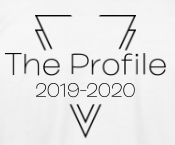“Tic-Tok”
November 25, 2021
Throughout the years, social media has dictated trends that are often considered harmless and fun for everyone involved. However, recent trends, most of which originate on the platforms Tik-Tok and Twitter have been causing more harm than good. These past few months, a new study emerged stating that Doctors have been dealing with an increase of people exhibiting tourette-like syndrome(a neurological disorder), most of them found in young girls. What was found in common with all the patients was that they were all watching the “Disorder Side of TikTok-” which often features people lying about having a neurological disorder.
Often, when going through TikTok, you continue to scroll through your favourite aesthetics or your favourite content creator’s videos. However, what would happen if you saw a video of someone claiming to have Tourette Syndrome, undiagnosed Autism, Dissociative Personality Disorder, or any other type of neurological issue? Many people would check the creators page, and as they continue to look at that page, they may find similarities between themselves and the creator. Dr. Duffy, a neurologist who is an M.D from Penn State , stated in an interview with Morning in America that social media allows people to feel supported, and seeing someone who you can relate to could cause you to start and adopt their personality.
A study from the International Parkinson and Movement Disorder Society reveals that during the pandemic, when most people were online, a large increase in people stating they have a neurological disorder of some kind occured. Many of them have stated that they were suffering from undiagnosed Tourette Syndrome or Dissociative Personality Disorder (DID for short). Most were women and girls aged from 12 to 25 years old, and based their claims on the difference in neurological symptoms between men and women, as well as other creators they saw on TikTok. While the fact about neurological disorders show up differently based on your gender is true, many of the individuals claiming to be neurodivergent have forgotten one important fact; It has been proven multiple times that you cannot get Autism, Tics, or DID from watching someone else who has them, as they are a genetic disorder, and therefore not contagious.
To better understand why an increase in “tic attacks” have happened, many people have decided to look at the people faking disorders. One TikToker in particular, @Ticsandroses, has been infamous in the neurodivergent community, mainly for their misrepresentation of people who struggle with Tourettes. Ticsandroses videos show how they “struggle” with their day-to-day life with tic attacks. However, it has been proven by multiple accounts, including by their own family, that they do not in fact have Tourettes. “As an actual person with tourettes it’s sick to see that something that hurts me so much is seen as quirky and cute by a disturbing amount of people,” said an anonymous member from the Tourret Association of America when the group was discussing the TikToker.
Many of the things that people were calling Ticsandroses out on is how obvious it is that they’re faking. “It’s amazing how none of her tics actually cause her harm, and how she laughs after each one,” “Did anybody else notice that they were quieter in the store when they were having a ‘tic attack’ than when they were at home?” Even family members have stated that Ticsandroses does not have tourette syndrome, but they do have “Juvenile Huntington’s Disease.” However, that disease is completely different and does not cause Tourettes.
Faking having neurological disorders has proven to be very harmful to people who actually have the disorders. Many social media platforms, Reddit in particular, have bullied people off of TikTok, mainly by the use of death threats. While normally, this would not be important to mention, they have targeted some actual members of the neuro-divergent community and bullied them off of TikTok, which only further harmed the real victims. Not only is it a social media issue, but it is causing mis-diagnosis in hospitals; as with so many people claiming to have neurological diseases lately, many people who have the diseases are not getting the proper medication they need. Tiktok has not implemented any regulations for the situation, citing that there is no real way to successfully target those who are faking the disorders.
Unfortunately, it does not seem like the issue of people faking mental disorders will be resolved, as people have been doing it for years, and the internet is only allowing those people to reach out further and hurt more people who actually live with the disorders. And while people’s attempts to take these liars down have been fruitful, they have also targeted members of the actual neurodivergent community in doing so, due to faulty information on their part. It does not seem like a clear end to this unfortunate situation is in sight.


